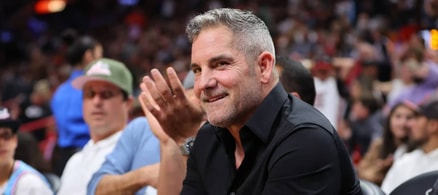Leaving a headache for your loved ones
The trouble, experts say, is that many people make assumptions about what will happen to their assets when they die.
“Most people think, ‘Oh, well, everything is going to go to my kids, or to my wife anyway,’” says Betty-Anne Howard, a financial planner with Athena Wealth and Legacy Solutions in Kingston, Ont. “But no, that's not what happens.”
What actually happens depends on the laws in your province. In Ontario, the first $200,000 of your estate will go to your spouse. And if you have any children, the rest will be divided between the children and your spouse.
It’s not just in Ontario that you can expect the government to step in to determine how your estate should be distributed. The amounts of what a spouse can expect to inherit may vary by region, but most other provincial laws handle an intestate’s assets similarly. And some provinces, including Ontario, specifically identify that common-law spouses will be left out of the chain of succession.
It gets trickier when there’s no obvious direct heirs. Any assets may pass to your parents or siblings or children of your siblings.
But not leaving any clear directions places the burden on your loved ones to sort it out while they’re grieving your loss, says Sally Lee, an estate and trust consultant for Scotia Wealth Management in Toronto.
“When there is no will, it makes it difficult for family members,” says Lee.
They may have to turn the house upside down looking for any record of a will. And if they find nothing, then someone will have to be named the executor. In some families, this could cause drama.
“That conversation, depending on the family relationships, could be quite interesting or it could be quite straightforward,” says Lee.
Even if you have a harmonious family unit, she adds, it can be an expensive, exhausting and time-consuming job to sort your estate out.
A better online investing experience
Easy to use and powerful, Qtrade's online trading platform puts you in full control with tools and resources that help you make well-informed decisions.
Invest NowProtecting the next generation
While both Lee and Howard believe many people choose not to go through the process of writing a will simply because they’re unaware of the consequences of what will happen without one, some also may think it’s not worth the effort in their situation.
Occasionally, Howard says people question the need for a will when they have insurance policies and named beneficiaries on savings accounts like RRSPs. These things can get around probate, the often long legal process of ensuring a will is legitimate.
But “there are things that can happen,” says Howard “So you’ve named your spouse the beneficiary of your RRSP. What if you’re both in a car accident together? Then where do things go?’”
And there’s the matter of minor children. Without a will, if all of the child’s legal guardians (typically the parent or parents) are out of the picture, and they haven’t named a guardian in their will, any children may end up in foster care until a judge can identify a family member to take them — and it may not be the person you would have intended to care for your kids.
In Ontario, Lee adds, the portions of your estate your kids are entitled to will actually go to the Accountant of Superior Court of Justice, where the money will be held by the court until they turn 18.
To access any of those funds before they turn 18, someone will have to apply on their behalf to the Court.
Outside of Ontario, your children’s inheritance will be held by the regional equivalent of the Office of the Children’s Lawyer until they turn 18 or 19, depending on the province.
Consider your legacy
Even if there’s no one in your life that you want to leave your assets to, Howard suggests flipping the way you think about estate planning might help convince you of its importance. You could leave money to a charity or cause you care about.
“It’s important people are clear about their intentions, what they would want to see happen and why they would want to see that happen,” Howard says.
Because when it comes down to it, planning ahead and leaving clear guidance about your wishes isn’t something you do for yourself, Lee says.
“Really, this is for the benefit of the next generation.”
Sponsored
Trade Smarter, Today
With CIBC Investor's Edge, kick-start your portfolio with 100 free trades and up to $4,500 cash back.






